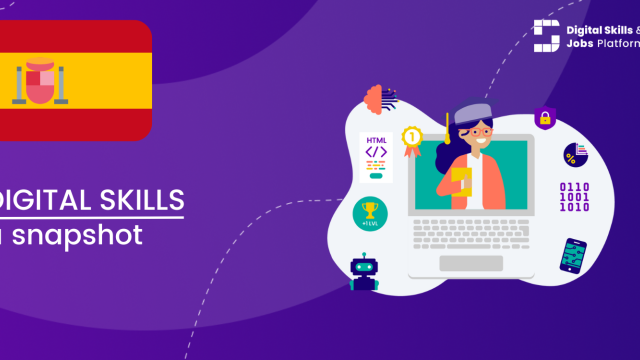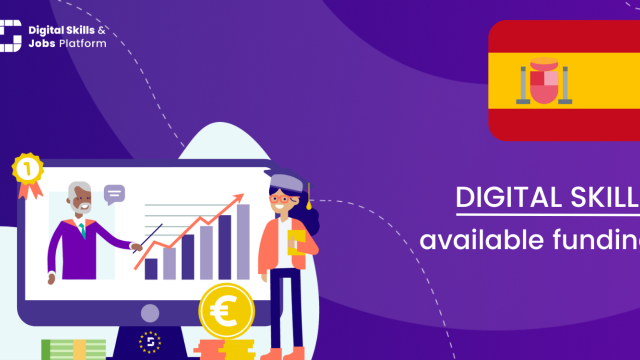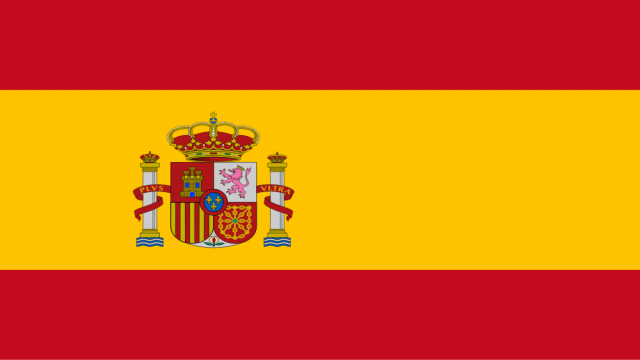Spain
Spain has achieved 66.2% basic digital skills coverage, growth comparing to 64.2% in 2023 and now surpassing the EU average of 55.56%. According to the Digital Decade report 2025, Spain has not surpassed the EU average of 5%, despite increasing from 4.4% to 4.7% last year. The share of female specialists in 2024 was 19.6%. Spain benefits from a robust digital infrastructure that is generally more advanced than the EU average. The country still lags on the digitalisation of enterprises, especially for SMEs. However, it advanced on the promotion of online rights for its citizens, including minors.
Spain has a National coalition for digital skills and jobs led by AMETIC.
The Spanish National strategic roadmap for the Digital Decade developed by the Government of Spain sets out the strategic goals to be achieved by 2030, monitoring their achievement, and the target paths and key measures have been developed.
Spain's digitalization efforts are guided by the Digital Spain 2026 roadmap, part of the Digital Spain Agenda 2026. The roadmap encompasses eight specific plans, including those for digital infrastructures, 5G technology, artificial intelligence, digital skills, SME digitalization, public administration, Spain's audiovisual hub, and cybersecurity.
The National Plan for Digital Skills, launched in 2021, emphasizes digital skills development across seven action lines. The country's Recovery and Resilience Plan supports digital transition through investments in digitalization, connectivity, cybersecurity, and digital skills. Measures include providing portable devices to students, improving digital systems in schools, supporting vocational education, and promoting digital talent through initiatives like Educa en Digital, Barcelona Digital Talent, IT Academy, and the National Institute of Cybersecurity's Academia Hacker.
By implementing these strategies and initiatives, Spain aims to enhance digital skills, close the gender gap, foster digital talent, and meet the evolving demands of the digital economy.
Spain ranks 7th out of the 27 EU Member States in the DESI dashboard for the Digital Decade for the 'At least basic digital skills' indicator, with 66.2% of its population possessing at least basic digital skills.






